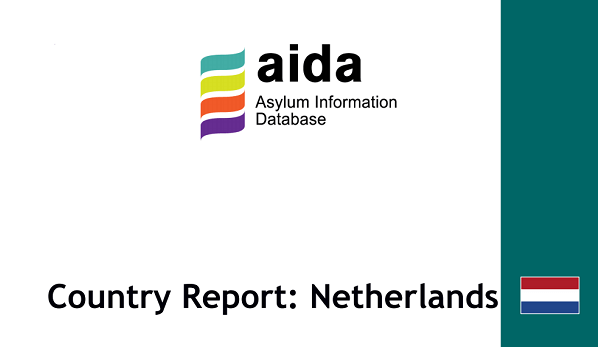The updated AIDA Country Report on the Netherlands provides a detailed overview on legislative and practice-related developments in asylum procedures, reception conditions, detention of asylum seekers and content of international protection in 2020.
In the first months of 2020 the asylum procedure was affected by the pandemic. The asylum procedure was suspended from 15 March 2020 up to 28 April 2020. During this period, the registration of asylum seekers was limited to taking fingerprints, frisking, searching luggage and taking possession of documents. After the registration and before they were able to lodge the official application for asylum, asylum seekers were taken to an emergency accommodation. They could not freely leave this accommodation. The emergency location was closed on 12 May 2020. In order to minimise physical contact during the COVID-19 pandemic, the IND has started conducting videoconference interviews since April 2020. Unaccompanied minors and asylum seekers with medical problems are excluded from these video interviews.
The significant delay in the asylum procedure in 2019 continued in 2020. In March 2020, 15,350 asylum applications of people who applied for asylum before 1 April 2020 were passed on to a newly established Task Force, with the aim of clearing the backlogs before the end of 2020. The Task Force has not succeeded in doing so. By 31 December 2020 the Task Force had decided upon 8,200 applications, leaving more than 7,000 applications to be decided in 2021. In order to address the backlog of pending cases, a written interview was introduced. The IND hopes that by using a form, it will be able to accelerate decisions. Currently, the written interview, which is not mandatory, is limited to asylum seekers with the following nationalities: Syrian, Yemenite, Eritrean, Turkish and Iranian. The IND will always carry out an interview in person if they cannot decide positively on the asylum application on the basis of the written interview.
Due to the long waiting times at the IND and a delay in housing of status holders, applicants spend longer periods in the reception centres. The Central Agency for the Reception of Asylum Seekers (COA) still needs 5,000 extra places in 2021 due to this development. COA announced that it is ready to introduce urgent measures, such as hotel accommodation and granting bonuses for municipalities that quickly accommodate status holders. A last resort is emergency shelter in sports halls.
In 2020 the Netherlands also opened ‘austere’ reception centres for certain categories of asylum seekers. Asylum seekers whose asylum application is processed in ‘Track 2’ (i.e. safe countries of origin or status holders in another Member State), must – as of September 2020 – stay in separate ‘austere’ reception centres. In this reception centre they receive benefits in kind, they have to report daily, and additional security is present.
Family reunification has been severely impacted by the measures against the Covid-19. Many family members who already had permission to reunite were not able to obtain the visa form the Dutch embassies, or could not travel to the Netherlands on the visa that had been issued. The Dutch Immigration Services and the department of Foreign Affairs agreed that family members for whom the permission to obtain visa or the visa itself had expired, were offered new visa directly from the embassy if they could not reach the embassy within three months of expiration. Family members who could not meet that condition were offered an expeditious handling of their subsequent application for family reunification at the Immigration Office.
This article appeared in the ECRE Weekly Bulletin. You can subscribe to the Weekly Bulletin here.

